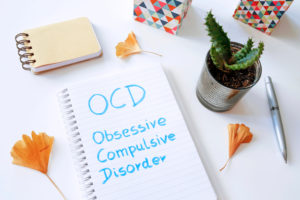
CBT, or Cognitive Behavioural Therapy, is a talking therapy used to support individuals with a number of mental health issues. As well as helping those stuck in a repetitive spiral of negative thinking, CBT can also be successful in the treatment of addiction.
There have been numerous research studies which prove the effectiveness of CBT for addiction recovery from substance use disorders, in preventing relapses and improving abstinence.
By helping individuals to identify and change negative beliefs and behaviours, strategies learnt within CBT sessions can be applied to real life, in order to make maintaining abstinence easier.
Our psychologists, therapists and counsellors at Newcastle Psychologist understand how useful CBT can be with addiction recovery, working with each individual to put realistic strategies in place that are tailored to their needs.
How Does CBT for Addiction Work?
Cognitive behavioural therapy works by identifying negative thoughts that cause distress, and providing strategies to change these.
With unhealthy thoughts commonly leading to unhealthy behaviours and habits, the therapy teaches individuals how to deal with the triggers of these thoughts to break the habit and addiction cycle.
While other addiction treatments can help aspects such as detoxification or withdrawal management, CBT for addiction can help to develop vital skills needed to stay sober for life.
Within a safe environment, either face-to-face or through online therapy, our psychologists, therapists & counsellors can help you to develop positive coping mechanisms.
Benefits of CBT for Addiction Treatment
There are a range of short and long-term benefits to using cognitive behavioural therapy to help with addiction recovery. These benefits include:
- Abstinence and reduction in unhealthy behaviours
- Continuous support from our CBT therapists in Newcastle
- Improved self-esteem & relationships with others
- Effective coping skills that can be transferred to other aspects of life.
In one particular research study, Cognitive Behavioural Therapy (CBT) reduced substance use in 79% of participants – leading to overall improved life outcomes.
Speak to Our CBT Therapists in Newcastle
If you or someone you know is struggling with the negative patterns of behaviour that accompany addiction, there is help available.
To access CBT in Newcastle for addiction, please fill in the box below, or call 07966645198 to speak to a member of our caring team today.

Best wishes,
Dr Stuart Sadler
Lead Clinical Psychologist




